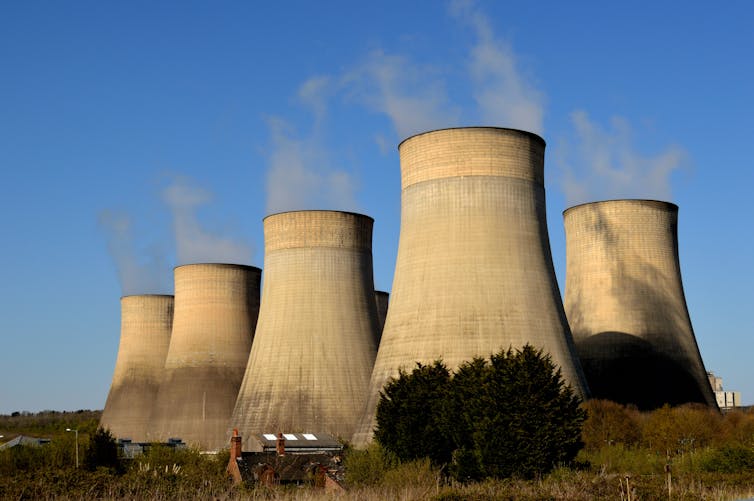[ad_1]
The UK authorities has introduced it’s going to make investments virtually £22 billion in carbon seize and storage (CCS) tasks over the following 25 years. The expertise works by capturing CO₂ as it’s being emitted by an influence plant or one other polluter, then storing it underground.
This sounds nice in principle. Nonetheless, it appears Labour has been swayed by the fossil gasoline foyer, which has pushed CCS for years. This announcement represents an enormous guess on a nonetheless unproven expertise, and can lock the UK into fossil gasoline dependence for many years to return. The Local weather Change Act mandates the UK ought to obtain internet zero emissions by 2050, but this shall be unattainable if carbon seize results in the UK constructing new gasoline energy stations as an alternative of wind and photo voltaic farms.
I used to be one in every of a number of main local weather scientists who just lately signed a letter to the vitality safety and internet zero secretary, Ed Miliband, wherein we identified the numerous points with the present plans.
Even when the expertise labored completely, it nonetheless locks the UK right into a reliance on pure gasoline (which is principally methane, a potent greenhouse gasoline) for generations to return. This can end result within the UK being reliant on imported pure gasoline previous 2050, which has important upstream emissions from methane leaks, transport and processing.
That then exposes the UK to the continued volatility of the worldwide vitality markets, which partially induced the nation’s value of residing disaster. (Renewables don’t have this downside, because the wind and solar don’t must be imported from abroad.)
Overpromising, underdelivering
Within the letter, we identified that carbon seize tasks have a really poor monitor report of overpromising and underdelivering. Most present CCS capability is inside pure gasoline processing amenities, the place CO₂ should be separated out to provide marketable merchandise. Nearly 80% of the CO₂ captured is reinjected into oil fields to facilitate oil extraction.
The monitor report of including carbon seize to energy crops is way worse, with the overwhelming majority of tasks deserted. Simply two commercial-scale coal-fired energy crops are working with CCS: Boundary Dam in Canada and Petra Nova within the US. Each have skilled constant underperformance, recurring technical points and ballooning prices.
In any case, Britain simply closed down its final coal energy plant. And it’s really tougher to seize CO₂ from gasoline energy crops than from coal, since CO₂ is present in decrease concentrations within the emitted gases.

Chris Dukes / shutterstock
One argument for CCS is that it may be used within the manufacturing of so-called “blue hydrogen”, which is derived from pure gasoline and may in principle be used to warmth properties or energy automobiles. But many tasks doing this all over the world have been deserted.
A variety of makes use of have been promoted for hydrogen, however not all are sensible or aggressive. The declare that hydrogen ought to have a big position in heating buildings has been comprehensively disproved, whereas direct electrification is more and more rising as a greater resolution for industrial course of heating.
Higher methods to spend £22 billion
That £22 billion earmarked for CCS tasks ought to as an alternative be invested in confirmed applied sciences corresponding to renewable vitality, and on upgrading the UK nationwide grid.
We don’t deny that each carbon seize and “inexperienced” hydrogen (derived from water not methane) could also be wanted for particular makes use of in a zero-carbon economic system. Carbon seize and storage must be used on current fossil gasoline infrastructure to cut back its emissions as it’s phased out, whereas inexperienced hydrogen shall be an vital manner of storing and transporting inexperienced vitality all over the world. It’s going to even be important to cut back the emissions from metal manufacturing.
However the science could be very clear: it is senseless to make use of hydrogen as a manner of heating buildings or driving our transport techniques.
Because the world leaders agreed and declared at the newest UN local weather summit, COP28 in Dubai, we should transition away from fossil fuels in a simply, orderly and equitable method so as to obtain internet zero by 2050. This is not going to occur if the UK and different international locations lock themselves right into a fossil fuel-based pathway with inevitable upstream emissions, displacing genuinely zero or low-carbon electrical energy technology.
[ad_2]
Source link

